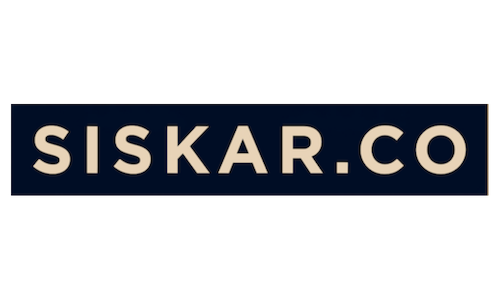
Memento Mori: 117 Billion People
Over 100+ billion humans have existed before us… Everyday we drive on roads, enter buildings, use technology, medicine and science whose existence is the result of contributions by billions of human lives that have come before us.
Over 100+ billion humans have existed before us…
When I first heard this number a few years ago, it was kind of mind blowing. Everyday we drive on roads, enter buildings, use technology, medicine and science whose existence is the result of contributions by billions of human lives that have come before us. We stand on the shoulders of 100+ billion humans who are no longer with us.
117 billion humans to be exact. Recent discoveries suggest that modern Homo sapiens existed much earlier than previously thought, around 200,000 B.C.E. This major shift in our understanding of human existence has led to the estimation that about 117 billion members of our species have ever been born on Earth. When considering this vast number, it's humbling to think about our individual significance and the marks we leave behind. But also, motivational, in some ways as well. In the words of the late Steve Jobs during his famous Stanford Commencement speech,
"Remembering that I'll be dead soon is the most important tool I've ever encountered to help me make the big choices in life. Almost everything—all external expectations, all pride, all fear of embarrassment or failure—these things just fall away in the face of death, leaving only what is truly important."
This perspective, deeply rooted in the Latin phrase Memento Mori, which translates to "remember you must die," serves as a powerful reminder of our mortality and the urgency to focus on what truly matters. Reflecting on how we can truly have a lasting legacy.
So how many humans are there alive today? As of 2024, the world population stands at 8.1 billion, reaching 8 billion in November 2022. It had taken all of human history until around 1800 for world population to reach one billion, the second billion was achieved in only 130 years (1930) thanks to the industrial revolution, the third billion in 30 years (1960), the fourth billion in 15 years (1974), and the fifth billion in only 13 years (1987). Society reached six billion in 11 years (1998), followed by seven billion in 12 years (2010).
During the 20th century alone, the population in the world has grown from 1.65 billion to 6 billion. In 1970, there were roughly half as many people in the world as there are now.
So what does being in the mix with 8 billion other people mean for our ability to leave a mark on the world? Well quite a lot actually, as there is a second historical trend happening at the same time as our explosive world population growth; the rise of the internet.
As of 2024 internet users worldwide reached 5.35 billion, only 66.2% of the global population. This number is expected to rise to 6.54 billion by 2025, thanks to the spread of internet access through affordable mobile phones. From a mere 1.97 billion internet users in June 2010, this growth is nothing short of revolutionary. For context, that means only 1/3 of people now online had internet access when most of us in the tech community had already started tweeting in the late 2000’s…
The finite nature of our time on earth is undeniable. Yet, it's this very limitation that underscores the unprecedented opportunity available to us today. With today's connectivity, individuals have the potential to impact lives on a scale never before imaginable. From sharing knowledge to fostering global movements, the digital age is democratizing influence.
Personally, I'm on a mission to use my time to improve the lives of at least 1 billion people. I’ve shared this goal before in my previous reflections, and it is grounded in the belief that by helping founders and innovators reach their potential, their creations can, in turn, benefit humanity at large, thus improving the lives of 1 billion. It's a mission that I'm deeply passionate about.
In the grand scheme of the universe's timeline, our lives are but brief flickers of existence. Yet, it's within this brevity that we find our most profound opportunity to make an impact. The digital age has gifted us with tools of unprecedented power—the power to connect, to share, and to change the world in ways we're just beginning to understand.
As we navigate this golden age of connectivity, let’s carry the essence of Memento Mori with us—not as a morbid fixation on death, but as a vibrant call to live fully and to leave an indelible positive mark on the tapestry of humanity.
So, what will your impact be? How will you use the precious time you have to create, inspire, and transform the world around you? The clock is ticking, and the digital stage is set. The only question that remains is, what will you do with this unparalleled moment in human history?
The Secret History Of Silicon Valley By Steve Blank
Silicon Valley's name is synonymous with high tech, innovation and startups. But even the great Silicon Valley had to start somewhere and it did so in government secrecy and wartime urgency.
Silicon Valley's name is synonymous with high tech, innovation and startups. But even the great Silicon Valley had to start somewhere and it did so in government secrecy and wartime urgency. Steve Blank tells how Valley sprang out of the technology fight over the skies of Germany and secret efforts around (and over) the Soviet Union. This lecture is a must for those that want to understand how Valley came into being. (Thanks to Jeff Wald for surfacing this video and sharing with me.)
Ambition Today: Justin Dombrowski Uncovers The Power Of Curiosity, History, Bitcoin, & Education In Life
Break out your pen and paper and get ready to take notes because you will be tested on this episode! Justin Dombrowski, Principal at Historiocity teaches some incredible lessons during Episode #11 of Ambition Today.
Break out your pen and paper and get ready to take notes because you will be tested on this episode! Justin Dombrowski, Principal at Historiocity teaches some incredible lessons during Episode #11 of Ambition Today.
One of my favorite quotes from this episode perfectly embodies Justin's strong curiosity from a young age:
"I was trying to figure what kind of things best explained the world that I was interested in."
Justin has more degrees than you can count from institutions such as Columbia and Oxford. The real question though is why? Listen in to find out what Justin thinks of his personal experience with the formal education he has received and how he compares it to the world of entrepreneurship.
Through all his education Justin has become an expert on world history. We talk about what the past can teach us and ask the question: does history repeat itself? In his post academic life Justin now applies his intellect as an expert in the world of Cryptography, Bitcoin, and Financial Technology. Episode 11 of Ambition Today is packed with the following:
The power of curiosity.
How to manage curiosity.
How the access to information is changing education.
The value of formal education in the modern world.
How to use history to understand today.
Does history repeat itself?
How core human behavior is the golden thread unifying history across centuries.
Who is Satoshi Nakamoto?
What is the future of Bitcoin.
How will Bitcoin impact the world.
The importance of living life.
Ambition Today Question of the Day:
What kind of education is most valuable?
Be sure to listen and subscribe to Ambition Today in the iTunes Store for iOS and on Stitcher for Android.
Ambition Today Podcast Sponsors:
Audible.com








